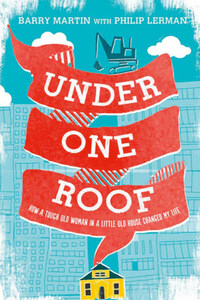I finally moved the cookies.
They were Walkers Pure Butter Shortbread cookies, the only brand of cookies Edith liked. They came from Scotland, and when you would eat them it was like you just ate a tab of butter. I remember she sent me to the store for cookies once, and they didn’t have her brand, so I brought not one, not two, but three others home. She took a bite of each one, and pushed them back at me. “All yours,” she snapped, staring up at me with those piercing blue eyes. “Not mine.”
It was always a battle of wills with Edith.
I eventually hunted down the Walkers at the old Ballard market. When I brought them home, she took one bite and said, “Well, that was worth waiting for, don’t you think?” Like she was a schoolteacher who’d just taught her problem student a simple lesson. There I was, a fifty-year-old man, a person with a position of responsibility, and she still made me feel like a kid, every single time.
After she died, and for the longest time after that, I couldn’t touch anything in her house. Like that box of cookies. It just sat there on the shelf next to the stove in that cramped kitchen, staring down at me, as if it was daring me to throw it out. Like it knew I wouldn’t. I was going to take the cookies over to the trailer at the construction site and let the boys have them. I brought the box to the door twice, at least, and set it down, and thought, well, I’ll get it when I go out. But when I was leaving, I just couldn’t take the cookies. I couldn’t leave them sitting by the door, either, because Edith would hate it if anything was out of place. So I’d pick them up and put them back on the shelf, right where they belonged, lengthwise, with the name “Walkers” showing on a bed of Scottish plaid.
I guess I just wasn’t ready.
I’m sitting in her house right now for what will probably be the last time, and looking at all this stuff, and wondering why it has such an effect on me. For the last couple of months, I’ve come over here, trying to pack up her things. There’s just so much. The music alone is going to take half a day. There’s the albums, hundreds of them: Mantovani, for example. Maybe thirty of those. Who the heck has thirty Mantovani albums? And tons of Guy Lombardo. Then all these cassettes on the wall, in a cheap little wooden cassette case that’s sagging in the middle – cassettes of Caruso and Beethoven and Benny Goodman. And CDs. Hundreds and hundreds of CDs. I guess she moved along with the times, up to a point – the albums, then the cassettes, then the CDs. The progression stops there, but still, it’s kind of funny to see so many CDs in a house where everything else feels like it’s straight out of the fifties. Anyway, I’d come here to pack stuff up, then walk around in circles for fifteen minutes, and leave without touching anything.
Even after all this time, whenever I walk in that front door, I expect to see her lying on the couch. I haven’t sat on that couch even once – I can’t bring myself to sit on it, the couch she lay on every day and slept on every night. I think I haven’t moved anything because she was just so particular that everything went back exactly where it was. There are hundreds of little ceramic figurines all over this place – lots of cows, and some little dogs and cats. She loved animals: here’s a ceramic cat at a piano that says “Meow-sic” and a begging dog and a bunch of little ceramic pigs. And back in the kitchen, she had the figurines from the Red Rose tea boxes. I don’t think she even liked the tea all that much, but she loved those little figurines. I read somewhere that Red Rose has given away 300 million of those little toy statues. Sometimes it feels like Edith had half of them.
And if you moved any of her figurines, anywhere in the house, she’d notice and get heartburn. One time my wife and daughter came down here to clean up the house a little, and the next day Edith was so irritated. “Where’s this?” and “What’s that doing over there?” she said to me. I asked her, what does it matter, but that just made her more irritated because she wanted things where they belonged. Maybe it’s because that’s where her mother kept things. Edith had a really strong connection with her mother, and a lot of things changed when her mother died. Or I guess it’s more accurate to say, a lot of things had to stay the same.
I think a lot of people face this when their parent dies. Edith wasn’t my mother, of course, and in a lot of ways I felt more like a parent to her, taking care of her like she was a child, not to put too fine a point on it. I still faced those same issues, though. The difficulty of accepting that she’s really gone. You question yourself: Did I do everything I was supposed to do? I think that until you answer that question, you can’t accept what’s happened. Maybe that’s why I kept everything just where it was, like in a state of suspended animation, while I thought about it.








